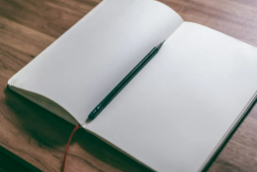Helen: Hello, welcome to Real English from BBC Learning English. I’m Helen.
Zoë: 还有我,刘佳。
Helen: Today we’re going to look at words and phrases that have recently become part of the English language.
Zoë: 在今天的地道英语里,我们来学习一些当代英语中最新出现的词汇,短语还有习惯表达。那 Helen, 咱们今天要学的新词是什么呢?
Helen: Today’s new word is whistle-blower. That’s whistle and blower; whistle-blower.

Zoë: Whistle-blower. Whistle 就是吹口哨儿, blower 就是吹哨儿的人,把他们连在一起,是什么意思呢, Helen?
Helen: Well, listen carefully. A whistle-blower is someone who tells the government or the public that the company he works for is doing something wrong or illegal. It’s common in newspaper reporting.
Zoë: 不成不成,有点儿晕。是说那种专门把坏事或者见不得人的消息告诉别人的人吗?
Helen: I’ll give an example. Imagine you were working for a law firm, but you found out that the company was taking money from criminals and not telling the truth in court. What would you do?
Zoë: 嗯,我想我会报警,或者把这个消息告诉给媒体。
Helen: So, you would be a whistle-blower.
Zoë: I see, a whistle-blower. 就是给公众或者权威机构通风报信儿的人。
Example
A: Why did you have to leave your job, Fred?
B: Well, I became a whistle-blower. The company wasn’t paying its taxes and I told the police. They closed the company as a result, and I lost my job!
Zoë: Would you become a whistle-blower, Helen?
Helen: Hmmm… yes. If the company was doing something illegal, I think I would have to say something. But I would be scared.
Zoë: Why?
Helen: Well, you would probably lose your job for one thing, and if the company was doing something illegal they might do something bad to you, to keep you quiet.
Zoë: In that case, you have to be very careful.
Helen: Exactly. Anyway, let’s recap, whistle-blower is...
Zoë: Whistle-blower. 就是形容对于一些不法行为给公众或者权威机构通风报信儿的人。
Helen: You’ve been listening to Real English from BBC Learning English. Join us again soon. Bye-bye.
Zoë: 咱们下次节目再见。







